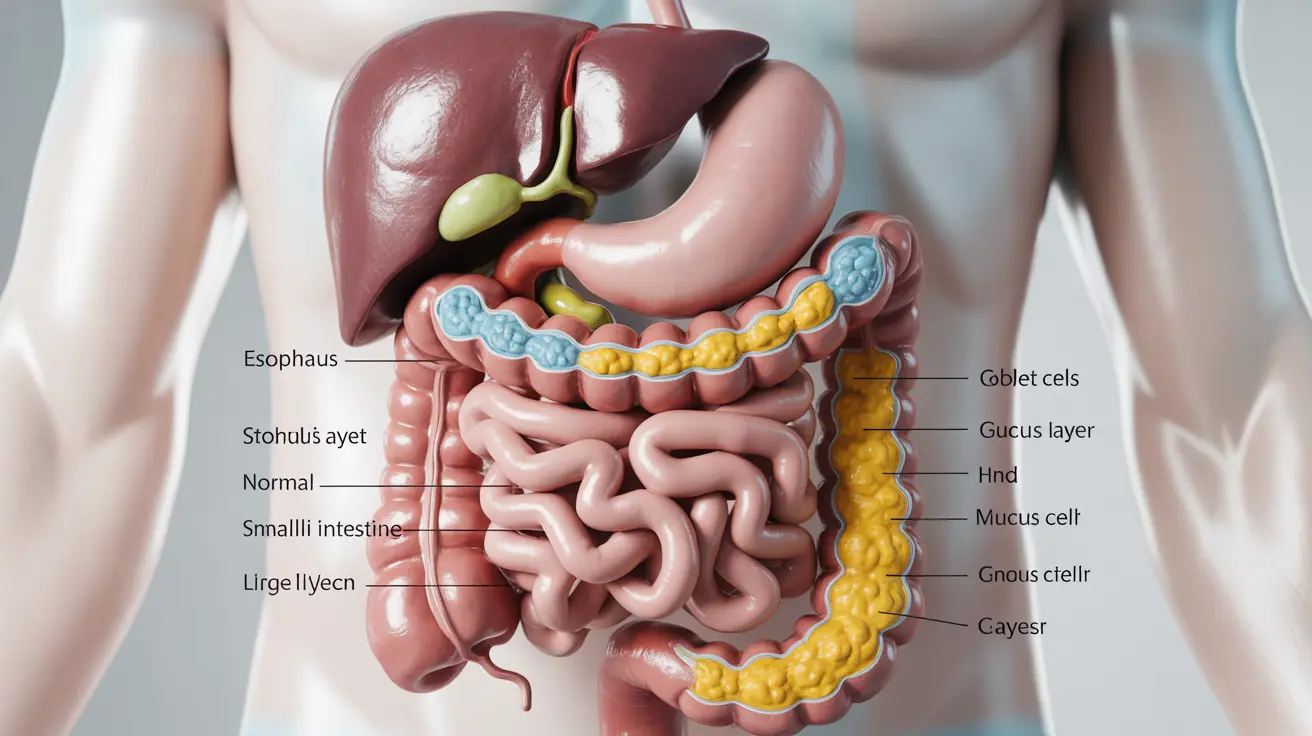Finding mucus in your stool can be concerning, but it's important to understand that some amount of mucus is actually normal and plays a vital role in digestive health. The digestive system naturally produces mucus to help lubricate the intestines and protect the gut lining. However, changes in the amount, color, or consistency of mucus in stool can sometimes signal underlying health issues that require attention.
Learning to recognize when mucus in stool is normal versus when it might indicate a medical concern can help you make informed decisions about your digestive health. This comprehensive guide will explore the various causes, associated symptoms, and important warning signs to watch for.
Normal vs. Abnormal Mucus Production
Your digestive tract naturally produces mucus as part of its protective barrier function. Normal mucus is typically clear or slightly white and appears in small amounts. However, certain conditions can trigger increased mucus production or changes in its appearance.
Signs that mucus in stool may be abnormal include:
- Excessive amounts of visible mucus
- Mucus accompanied by blood
- Changes in mucus color (yellow, green, or brown)
- Persistent changes in bowel habits
- Associated pain or discomfort
Common Causes of Increased Mucus in Stool
Inflammatory Bowel Conditions
Both Irritable Bowel Syndrome (IBS) and Inflammatory Bowel Disease (IBD) can cause increased mucus production. With IBS, mucus changes often occur alongside irregular bowel movements and abdominal discomfort. In IBD conditions like Crohn's disease or ulcerative colitis, inflammation can lead to excessive mucus production, often accompanied by blood in stool and severe abdominal pain.
Infections and Food Intolerances
Bacterial and viral infections of the digestive tract commonly cause increased mucus production. Food intolerances, particularly to dairy or gluten, can also trigger excess mucus along with other digestive symptoms. These conditions typically cause temporary changes and often resolve with appropriate treatment or dietary modifications.
More Serious Conditions
In some cases, mucus in stool can indicate more serious conditions such as:
- Colorectal polyps
- Colorectal cancer
- Celiac disease
- Severe intestinal infections
When to Seek Medical Attention
While occasional changes in mucus production might not be cause for alarm, certain symptoms warrant prompt medical evaluation:
- Blood in stool
- Severe abdominal pain
- Persistent changes in bowel habits
- Unexplained weight loss
- Fever
- Chronic diarrhea
Frequently Asked Questions
What does mucus in stool mean and when should I be concerned about it?
Mucus in stool is normal in small amounts, but you should be concerned if you notice increased amounts, changes in color, or additional symptoms like blood, severe pain, or significant changes in bowel habits.
What are common causes of increased mucus in stool, and which conditions produce blood or pain along with it?
Common causes include IBS, IBD, infections, and food intolerances. Conditions that may produce blood or pain alongside mucus include inflammatory bowel disease, severe infections, and potentially colorectal cancer.
How can irritable bowel syndrome (IBS) or inflammatory bowel disease (IBD) affect mucus production in stool?
IBS can cause periodic increases in mucus production along with changes in bowel habits. IBD typically causes more significant mucus production due to inflammation, often accompanied by blood, abdominal pain, and other systemic symptoms.
Can infections or food intolerances cause mucus in stool, and what other symptoms might appear?
Yes, both infections and food intolerances can cause increased mucus in stool. Additional symptoms may include diarrhea, abdominal cramping, bloating, and nausea. Food intolerances might also cause gas and digestive discomfort after eating trigger foods.
When is mucus in stool a sign of serious problems like colon polyps or cancer, and what symptoms should prompt a doctor visit?
Mucus in stool might indicate serious conditions when accompanied by blood, severe pain, unexplained weight loss, or changes in bowel habits lasting more than a few weeks. These symptoms, especially in people over 50 or those with a family history of colorectal cancer, should prompt immediate medical evaluation.




